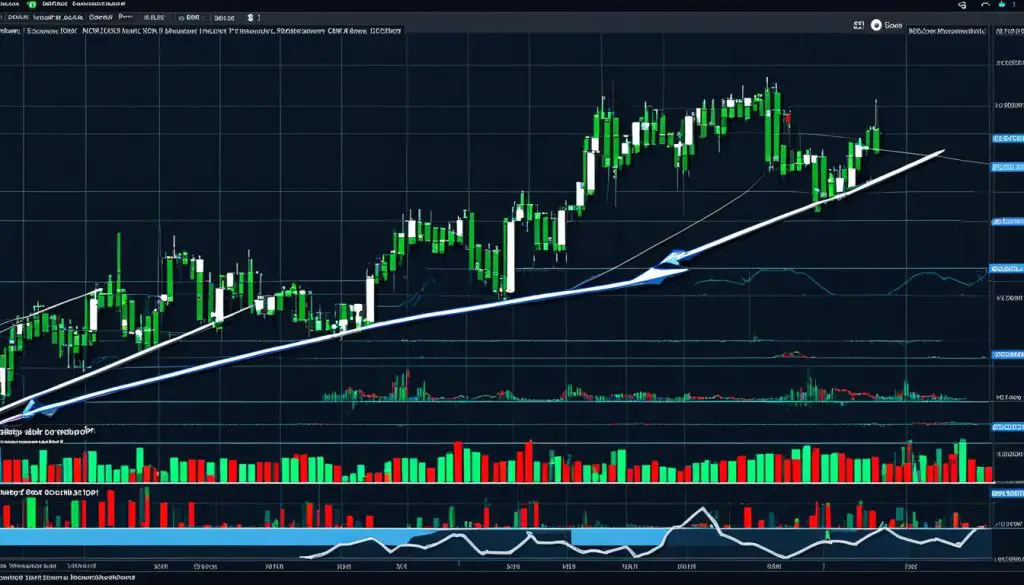The concept of dumb money trading often evokes a dismissive perspective toward the actions of the typical retail investor trading landscape. Characterized by uninformed trading decisions, those engaged in naive trading strategies are typically seen as being out of step with the sophisticated maneuvers of their institutional counterparts. At the core of this assumption lies the belief that individual, non-professional trading is marked by a lack of resources, timely information, and the analytical depth that might guide more strategic, informed decisions.
However, a groundswell of evidence suggests that retail investors are capable of refining their tactics when given access to performance feedback. This data loop invites a more nuanced understanding of market risks and a greater alignment of their strategies with empirical performance outcomes. The narrative of dumb money, it seems, may be ripe for a more informed reevaluation.
Understanding Dumb Money in the Financial Markets
Within the vast arena of financial markets, a distinct line often separates experienced, well-informed investors from inexpert, uninformed market participants. This line not only demarcates the knowledge base and resources available to each but also significantly influences portfolio performance. In this critical examination, we delve into the nature of what is pejoratively known as ‘dumb money,’ highlighting how feedback mechanisms can transform the trading behaviors of less seasoned investors.
Distinction Between ‘Dumb Money’ and ‘Smart Money’
‘Dumb Money’ often characterizes the actions of inexperienced traders who lack the sophisticated data and charts that professional financial analysts use. These individuals may have limited financial literacy and tend to base investment decisions on incomplete information. ‘Smart Money,’ on the other hand, is a term applied to institutional investors and market mavens who utilize comprehensive research and trend analysis to inform their strategies.
Behavior and Market Timing of Dumb Money Investors
Market timing, an essential facet of trading, often eludes the grasp of uninformed market participants. Dumb money investors are typically known for their reactive approach, swayed by market hype and entering positions at less-than-ideal moments. The result is a track record of buying high and selling low — counterintuitive to the staple goal of maximizing returns.
How Feedback Transforms Dumb Money Trading
Evidence suggests that the trajectory of dumb money trading can see meaningful improvement through the provision of systematic feedback. By illuminating the real-time nuances of portfolio performance, less experienced traders learn to recognize their missteps and refine their approach. Regular assessments can instigate a more discerning investment pattern, subtle risk management, and a potency for decision-making that more closely parallels ‘smart money’ operations. This dynamic is crucial not only for individual growth but for the integrity and balance of the financial markets at large.
The Psychological Trap: How Emotions Influence Dumb Money Trading
The influence of emotional decision-making in the financial sphere can be profound, especially within the realm of amateur investor trading. Studies have shown that making investment choices based on emotional drivers like fear, excitement, or hearsay often leads to decisions that deviate from rational, profit-driven strategies. The lure of get-rich-quick possibilities, often amplified by media hype, can seduce investors to enter the market during peaks, fueled by a fear of missing out, and exit during dips out of panic, solidifying the perils of market psychology in investment behaviors.
This pattern creates a troubling cycle where emotional responders invariably buy high and sell low, disregarding the fundamental advice of market timing. This behavior not only hampers individual portfolio performance but can also contribute to broader market inefficiencies. Recognizing the entrapment of emotions can empower retail investors to cultivate a disciplined approach to trading, one that mitigates the impact of instinctive reactions and aligns more closely with long-term strategic thinking.
- Recognizing Emotional Cues: Identifying the triggers that prompt emotional reactions can serve as a first step towards more analytical decision-making.
- Education on Market Psychology: A deeper understanding of market psychology could help amateur traders see past the immediate allure of market rumors or trends.
- Utilizing Analytical Tools: Leveraging technology to analyze trends objectively may reduce the influence of emotion-driven decisions.
- Maintaining a Long-term Perspective: Focusing on long-term investment strategies helps to avoid the pitfalls of reactive, short-term trading.
While market swings can be unpredictable, the confidence to navigate these fluctuations comes with experience and education. For those involved in amateur investor trading, shedding the label of ‘dumb money’ is contingent upon their ability to sidestep the psychological traps laid by emotional decision-making and to engage with the market from a position of informed strategy and steadfast resolve.
Dumb Money Trading in Real-World Cases
The dynamic landscape of the stock market is occasionally shaped by the collective might of retail investor trading, demonstrating that the influence of individual investors is not to be underestimated. The real-world cases of ‘dumb money’ trading can offer deep insight into this phenomenon, unfolding scenarios where the seemingly uninformed can sway market movements significantly.
The GameStop Saga: A Tale of Dumb Money Triumph
Perhaps the most illustrative example of retail investors challenging established financial norms is the GameStop saga. In a David vs. Goliath scenario, swarms of individuals coalesced through online communities, particularly on the Reddit forum r/wallstreetbets, to drive up the price of GameStop shares. This movement was in direct opposition to the positions of major hedge funds, which had heavily shorted the stock. The result was an unprecedented surge in GameStop’s stock value, signifying a notable victory for retail investors over Wall Street professionals.
Understanding Wall Street’s Vernacular: Short Squeezes, Tendies, and More
During this remarkable episode, a new vernacular emerged among traders frequenting these online platforms. Terms like ‘short squeeze’, embodying the pressure that short sellers face when a stock’s price ascends, become common parlance. ‘Tendies’, a playful term for profits, and the battle cry ‘to the moon’ – indicating the belief that a stock’s price will skyrocket – have become part of the retail investor trading lexicon, demonstrating the cultural impact of this demographic on the stock market.
The Role of Online Communities in Retail Investor Trading
Online communities have played a pivotal role in shaping the approach and strategies of retail investors. Platforms like Reddit, Twitter, and various stock trading forums have become central hubs for sharing information, strategies, and moral support among individual investors. These digital congregations have set the stage for coordinated trading efforts, which have the capacity to cause significant stock market movements and even create material outcomes on a scale that was once solely attributed to large institutional players.
How Retail Investors Can Mitigate the Risks of Dumb Money Trading
In the pursuit of market success, retail investors face the daunting challenge of overcoming the stigma attached to ‘dumb money’ trading. By integrating strategic tools and knowledge, they can enhance their decision-making and potentially achieve better financial outcomes. Let’s explore the critical steps that can be crucial in transforming the approach of retail investors from impulsive to informed.
Utilizing Feedback and Performance Reports
Regular feedback reporting serves as a navigational compass for investors, guiding them through the complexities of the market. Employing periodic performance reports, investors can track their portfolio’s progression and adjust their strategies in real-time. This responsiveness to feedback can be essential for mitigating risks commonly associated with less informed investment decisions.
The Importance of Investor Education and Financial Literacy
Education stands as the cornerstone of effective investing. Financial literacy empowers retail investors to distinguish between transient market trends and robust investment strategies. Through a deeper understanding of financial concepts and the economic factors influencing the markets, investors are better positioned to withstand the temptations of high-risk gambles and instead opt for sound financial planning.
Leveraging Technology for Better Investment Decision-Making
The advent of technology in trading has opened avenues for retail investors to harness powerful analytical tools. User-friendly mobile trading apps and sophisticated software platforms now offer access to real-time market data, algorithmic trading strategies, and comprehensive research materials, all contributing to more data-driven investment decisions.
To encapsulate the benefits accessible to the modern investor, consider the following comparative analysis of traditional versus technologically-enhanced investing:
| Investing Paradigm | Access to Information | Decision-Making Basis | Use of Feedback |
|---|---|---|---|
| Traditional Retail Investing | Limited to public news and basic reports | Primarily instinctive and reactive | Sparse, with little to no active performance monitoring |
| Technologically-Enhanced Investing | Real-time data, comprehensive analytics | Data-driven and strategically planned | Continuous, with regular performance feedback and actionable insights |
As this table elucidates, the integration of technology into trading practices equips retail investors with a substantial edge. It transforms how they engage with the markets and positions them to make informed decisions paralleling the savvy moves of institutional investors. The interplay of feedback reporting, financial literacy, and technology not only diminishes the risks of ‘dumb money’ behavior but also paves the way for a more measured and enlightened approach to investing.
Dumb Money Trading: A Comprehensive Analysis
**Investing behavior**, **market dynamics**, and seeking **risk-adjusted return** are critical elements that define the landscape within which retail investors operate. Examining these aspects illustrates the varied nature of ‘dumb money trading’ and spotlights methods through which individual market participants can work towards parity with more sophisticated investors.
Investing behavior in the context of ‘dumb money’ is characterized by a lack of formal strategy and an inclination towards emotional responses to market fluctuations. To counterbalance this, investors need to embrace educational opportunities that deliver insights into effective investment strategies and market analysis.
Market dynamics are ever-changing, influenced not only by macroeconomic indicators but also by the flood of retail investors into the financial markets. Understanding these dynamics is crucial for investors who wish to ride the waves of market volatility rather than be swept away by them.
The goal of achieving a favorable risk-adjusted return should be paramount. This can be gauged not just by the nominal return rate but by the return in relation to the risks assumed during investing. Advanced analytical tools and platforms today provide investors with more granular data to make well-informed decisions that optimize for risk and return.
To further delve into these key areas of analysis, consider the following table, which summarizes the core aspects of dumb money trading and the proactive measures required to refine investing behavior:
| Key Aspect | Challenges for ‘Dumb Money’ | Strategies for Improvement |
|---|---|---|
| Investing Behavior | Emotionally driven decisions | Educational resources and learning platforms |
| Market Dynamics | Timing the market incorrectly | Market research and analysis tools |
| Risk-Adjusted Return | Not accounting for the risk incurred | Risk management and diversification strategies |
By acknowledging these insights, retail investors associated with ‘dumb money’ can make significant strides towards not just closing the gap with institutional investors but also towards potentially revolutionizing their own financial futures.
Conclusion
The term ‘dumb money’ may have once painted a rather bleak picture of amateur investors’ contributions to financial markets, but a closer examination reveals a more nuanced reality. The market impact of these individual investors is undeniable, as they can drive significant volatility and present occasions for market recalibrations. They’re not just a sideshow to the machinations of their ‘smart money’ counterparts; their collective actions shape the terrain of investment and trading.
Summing up the Impact of Dumb Money Trading
As we observe the thrust and parry of the financial markets, the influence of retail investors—often labeled as ‘dumb money’—has emerged more palpably in recent times. A combination of accessibility to market data and community-driven movements has led to amateur investor success in some high-profile cases. While these triumphs are not the norm, they highlight a potential shift toward a more empowered class of retail investors.
The Shifting Landscape for Retail and Amateur Investors
Historically, the chasm between novice investors and market professionals was vast and difficult to bridge. However, with enhanced access to intelligence and intelligent investment strategies, motivated by the proliferation of digital resources and investment tools, the landscape is changing. Today, driven individuals have the capacity to graduate from uninformed speculation to informed strategies, leveraging technology to bolster their market participation effectively.
Final Thoughts on Smart Investing Practices
To navigate the choppy waters of today’s financial markets, a dedication to smart investing practices is paramount. This commitment entails undeviating adherence to thorough research and the employment of diversified portfolios. Adopting measured responses to market events is essential for sustaining long-term growth, over merely capturing ephemeral gains. Underpinning this all is a continuous education, fortifying investors with the wisdom to discern transient trends from substantive opportunities.
FAQ
Dumb money trading refers to investment activities by retail or individual investors who are typically less informed, and may lack the resources and tools that institutional investors (smart money) have access to. They often employ naive trading strategies and make decisions based on limited information or emotional responses.
Emotional decision-making, such as fear of missing out (FOMO), instinct-based actions, and reactions to media hype, can greatly influence ‘dumb money’ trading. These factors can lead to impulsive buying or selling without a sound strategic foundation, often resulting in suboptimal investments.
‘Dumb money’ trading can significantly influence market trends, occasionally leading to market corrections and increased volatility. This is because the collective actions of a large number of individual investors can result in significant capital movements, leading to price fluctuations in various securities.






